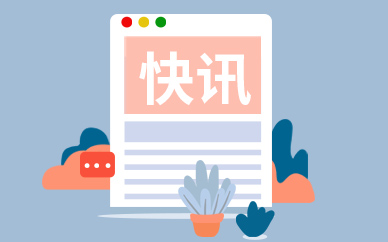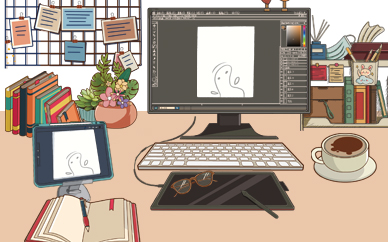天天即时:Democracy shouldn't be kidnapped
Editor"s note:The so-called Summit for Democracy convened by the US reflects its dangerous Cold War mentality and will instigate confrontations and political divisions within the international community. It is a preposterous show in violation of the spirit of democracy and exposes the US design to maintain its hegemony, which has been criticized and opposed by many countries. Three experts share their views on the issue with China Daily.
 (相关资料图)
(相关资料图)
JIN DING/CHINA DAILY
Rooted in the history, culture and traditions of a country, democracy takes diverse forms and develops along the paths chosen by the peoples of different countries based on their explorations and innovations. As such, the state ought to shoulder a unique responsibility of upholding and promoting principles that place emphasis on reforming the world order, and attendant ideas of mutual respect for countries" political sovereignty and avoidance of external conflict, which is at the center of international relations and countries" foreign policy.
Democracy does not consist of a single and unique set of institutions that are universally applicable. The specific form that democracy takes in a country is largely determined by the prevailing political, social and economic circumstances in that country.
Besides, no country has the right to use ideology and values as tools to subjugate or bully other countries and advance its geopolitical strategies, instigate divisions and confrontations in the international arena and push the world back to the dangerous Cold War era on the pretext of promoting democracy.
Triggering divisions and confrontations in the name of democracy is nothing but trampling on and betraying the democratic spirit and values. It will only bring turbulence and chaos to the world and undermine peace and development. This should be resisted and opposed by the international community.
The world needs to think from the global public"s perspective and gain added strength by coming together, and all peoples, countries and regions should participate in this endeavor and focus on building multilateral consensuses.
Democracy is the right of the people in every country rather than the prerogative of a few countries. Whether a country is democratic or not should be determined by its people, because democracy manifests itself in many forms. The practice of asserting a single model of political structure ignores the notion of shared human values, and is fundamentally undemocratic.
Peace, development, fairness, justice, democracy and freedom are common values of humankind. Whether a country"s path succeeds or not depends on whether it meets the country"s realities, follows the trend of the times, and brings about economic development, social stability and progress, and improves the lives and livelihoods of the people.
Therefore, a basic criterion of democracy should be about the people, whether they have the right to govern their country, whether their needs are met, and whether they feel a sense of fulfillment and happiness. If the people are only awakened to cast their votes and forced into hibernation after that, if they are served with sweet-sounding slogans during campaigns but have no say after the election, if they are wooed during canvassing but left out in the cold after that, then it is not genuine democracy.
Democracy is not an ornament to be worn for decoration; it should be used to solve the problems that the people want to be solved. Reaching a consensus on democracy is about shared human values. However, some Western countries repeatedly claim to promote "democracy" and "human rights" while exercising their power to subvert countries that do not follow their warped model. Such Western countries" aim is to kidnap democracy in order to manipulate the rest of the world, and fabricate "anxiety about democracy" to promote the Cold War mentality.
These legacy liberal states, in an attempt to divert attention from their domestic failures and disorder, shift the blame onto other countries. Take for example Afghanistan, Iraq, Libya, Tunisia, Somalia, Syria and Yemen. These countries and their peoples have been attacked and continue to suffer in the name of democracy and human rights.
Democracy must not be viewed solely on the basis of a country"s political system and by ignoring the diversity of civilizations. Asian societies display great diversity — ancient, culturally rich, colorful and diverse, like a beautiful garden deeply rooted in Asian civilizations and now blossoming due to the injections of new vitality. And the values of Asian societies cannot be understood or recognized without deeper understanding of Asia"s unique civilizations.
The uniqueness of a civilization is not different from the uniqueness of democracy. The rich diversity and vibrancy of civilizations are reflected in the different forms of democracy. Democracy does not come in uniformity and singular configurations given the world"s political and cultural diversity.
There are many ways that countries can practice democracy and there is no one-size-fits-all model for that. Countries with different histories, cultures, civilizations, traditions, customs and national conditions should develop a form of democracy that best suits their own characteristics and reality. No single country has the mandate to monopolize the definition of democracy, nor can it limit people"s right to explore and choose a model of democracy that best suits a country.
As a Chinese saying goes, only the wearer of the shoes knows if they fit or not. Similarly, only the people of a country, not some small external circles and cliques, can tell whether the political system followed by their government is democratic or not.
Only democracy with human values at the core can foster, promote and consolidate regional and global peace and harmony, ensure people live with dignity, help people understand and respect civilizational diversity and further enhance inclusivity, which will prompt the global public to accept the differences in civilizations, so as to help build a community with a shared future for mankind that leaves no one behind on the road of development.
The author is the director-general of the International Relations Institute of Cambodia, Royal Academy of Cambodia.
关键词:
-
 天天即时:Democracy shouldn't be kidnapped Editor snote:Theso-calledSummitforDemocracyconvenedbytheUSreflectsits
天天即时:Democracy shouldn't be kidnapped Editor snote:Theso-calledSummitforDemocracyconvenedbytheUSreflectsits -
 今日热讯:2022 marks a new low for human rights in US 2022sawlandmarksetbacksforhumanrightsintheUS,accordingtotheReporto
今日热讯:2022 marks a new low for human rights in US 2022sawlandmarksetbacksforhumanrightsintheUS,accordingtotheReporto -
 环球快报:中新网评:“清朗”行动,让网络空间事更清、理更明、法更透 中新网北京3月28日电(记者左宇坤)互联网是人类社会发展的重要成果,网络空间是亿万民众共同的精神家园。让这个家园“天朗气清”,是全社...
环球快报:中新网评:“清朗”行动,让网络空间事更清、理更明、法更透 中新网北京3月28日电(记者左宇坤)互联网是人类社会发展的重要成果,网络空间是亿万民众共同的精神家园。让这个家园“天朗气清”,是全社... -
 每日快播:“不留一寸荒山”——陕西宜川“悬崖造林队”种树记 在陕北,在黄河边,有这么一群普通人,他们常年用绳子拴住腰,将人吊在悬崖间,“吊威亚”般在黄河西岸的悬崖峭壁上垒坑种树。没有路,...
每日快播:“不留一寸荒山”——陕西宜川“悬崖造林队”种树记 在陕北,在黄河边,有这么一群普通人,他们常年用绳子拴住腰,将人吊在悬崖间,“吊威亚”般在黄河西岸的悬崖峭壁上垒坑种树。没有路,... -
 快讯:“洋专家”对话中国市长 | Ep.1 人怎么选? 中国的市长是怎样选出来的?市长人选必须符合什么标准?选拔任用程序有哪些?“洋专家”对话中国市长第一集“人怎么选?”听三位市长分...
快讯:“洋专家”对话中国市长 | Ep.1 人怎么选? 中国的市长是怎样选出来的?市长人选必须符合什么标准?选拔任用程序有哪些?“洋专家”对话中国市长第一集“人怎么选?”听三位市长分... -
 数字时代,田园不远(新语) 数字文化赋能乡村振兴,关键词是“连接”:连接展示与欣赏、供给与需求盘山路转过一道道弯,泥泞小路通往高山茶园,无人机盘旋空中,手...
数字时代,田园不远(新语) 数字文化赋能乡村振兴,关键词是“连接”:连接展示与欣赏、供给与需求盘山路转过一道道弯,泥泞小路通往高山茶园,无人机盘旋空中,手... -
 激活新发展格局微观动能 每日讯息 在近日举办的中国发展高层论坛2023年年会上,有与会嘉宾就当前加快中小企业数字化转型的问题进行了分析。党的二十大报告明确提出,要“...
激活新发展格局微观动能 每日讯息 在近日举办的中国发展高层论坛2023年年会上,有与会嘉宾就当前加快中小企业数字化转型的问题进行了分析。党的二十大报告明确提出,要“... -
 环球报道:重视“数字挖掘”乡村文化 乡村文化产业振兴是乡村振兴的有机组成部分,也是铸魂工程。当前,数字技术赋能乡村文化产业振兴愈发受到各方重视,成为加大乡村文化产...
环球报道:重视“数字挖掘”乡村文化 乡村文化产业振兴是乡村振兴的有机组成部分,也是铸魂工程。当前,数字技术赋能乡村文化产业振兴愈发受到各方重视,成为加大乡村文化产... -
 【央广时评】久久为功 清除网络暴力毒瘤 网暴问题一直是社会各界关注的焦点。3月28日,国家互联网信息办公室网络综合治理局相关负责人在国新办新闻发布会上表示,未来相关部门将...
【央广时评】久久为功 清除网络暴力毒瘤 网暴问题一直是社会各界关注的焦点。3月28日,国家互联网信息办公室网络综合治理局相关负责人在国新办新闻发布会上表示,未来相关部门将... -
 海南热带雨林国家公园核心保护区生态搬迁工作基本完成 3月28日,记者从2023年海南全省林业工作会议上获悉,海南热带雨林国家公园持续推进核心保护区生态搬迁工作,目前涉及国家公园核心保护区的451
海南热带雨林国家公园核心保护区生态搬迁工作基本完成 3月28日,记者从2023年海南全省林业工作会议上获悉,海南热带雨林国家公园持续推进核心保护区生态搬迁工作,目前涉及国家公园核心保护区的451
热点
-
 博鳌有新知丨看海南免税店的大格局-全球聚焦 意大利小哥出差海南发现世界最大单...
博鳌有新知丨看海南免税店的大格局-全球聚焦 意大利小哥出差海南发现世界最大单... -
 世界快看点丨三种跨境电商出口模式落地港珠澳大桥口岸 新华社广州3月28日电拱北海关日前...
世界快看点丨三种跨境电商出口模式落地港珠澳大桥口岸 新华社广州3月28日电拱北海关日前... -
 2022中国城市网盟奖公布 佛山新闻网荣获优秀城市网媒奖 焦点简讯 佛山新闻网讯记者梁智鹏报道:近日...
2022中国城市网盟奖公布 佛山新闻网荣获优秀城市网媒奖 焦点简讯 佛山新闻网讯记者梁智鹏报道:近日... -
 环球短讯!【央广时评】久久为功 清除网络暴力毒瘤 网暴问题一直是社会各界关注的焦点...
环球短讯!【央广时评】久久为功 清除网络暴力毒瘤 网暴问题一直是社会各界关注的焦点...
文章排行
娱乐图赏
-
 长兴路街道长兴社区“长兴公益杯”乒乓球首届联谊赛 适当的运动,是居民健康的基础,为...
长兴路街道长兴社区“长兴公益杯”乒乓球首届联谊赛 适当的运动,是居民健康的基础,为... -
 哀悼怎么读 哀悼词语念什么?-当前关注 1、哀悼,拼音āidào。2、悼念、...
哀悼怎么读 哀悼词语念什么?-当前关注 1、哀悼,拼音āidào。2、悼念、... -
 线上+线下全民狂欢!洛阳牡丹花车巡游嘉年华将于4月1日、2日晚举行 焦点快看 河南广电·大象新闻记者张超飞实习...
线上+线下全民狂欢!洛阳牡丹花车巡游嘉年华将于4月1日、2日晚举行 焦点快看 河南广电·大象新闻记者张超飞实习... -
 关于春天的诗歌现代诗短诗_关于春天的诗歌现代诗 1、描写春天的古诗春晓(孟浩然)春...
关于春天的诗歌现代诗短诗_关于春天的诗歌现代诗 1、描写春天的古诗春晓(孟浩然)春...